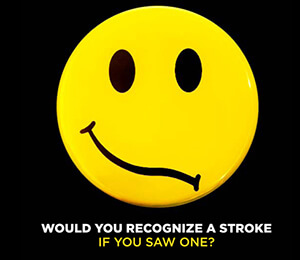3 important things to know about strokes
May is Stroke Prevention Month. It's the time of year to remind ourselves that strokes are one of the leading causes of death and disability in this country. And a good time to familiarize oneself with the signs of a stroke — and what to do if someone you are with begins showing them.
During a stroke, emergency medical treatment can make all the difference. Brain cells can die or become damaged in minutes due to a lack of oxygen. While some treatments are available to improve one’s chances of recovery, these are generally most effective if administered in the first 4½ hours after one starts showing stroke symptoms.
Here are three important things to know about strokes:
1. There is still much work to do in spreading stroke awareness. Although fewer people die of strokes today compared to previous decades, the decrease in stroke death rates in Minnesota is slowing. And in many states, this rate is increasing.
2. You can do something about your stroke risk. While your family history may increase your chances of having a stroke, many of the risk factors are preventable. Among the things you can do include is to:
- Stop smoking
- Eat a healthy diet and get regular exercise
- If you have diabetes, work to be better control your condition.
- If you have high blood pressure, work with a health care provider to lower it. And if you don’t know if you have high blood pressure, get it checked. One in six Americans with high blood pressure are unaware they have the condition.
3. There are several common stroke symptoms. These include:
- Sudden numbness, weakness of the face, arm or leg (especially on one side of the body)
- Sudden confusion, trouble speaking or understanding
- Trouble seeing in one or both eyes
- Problems walking, dizziness or loss of coordination
- Sudden severe headache with no known cause
If you or someone you’re with show any of these signs, call 911 to get them emergency medical care.
Stroke Q&A with Michelle Peterson, APRN, CNP
From Facebook Live on May 4, 2018. Visit our Facebook page now.
